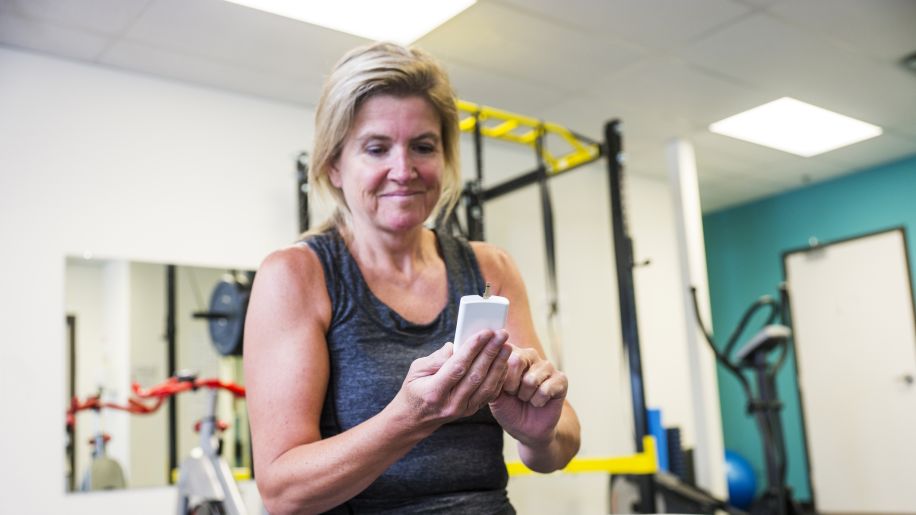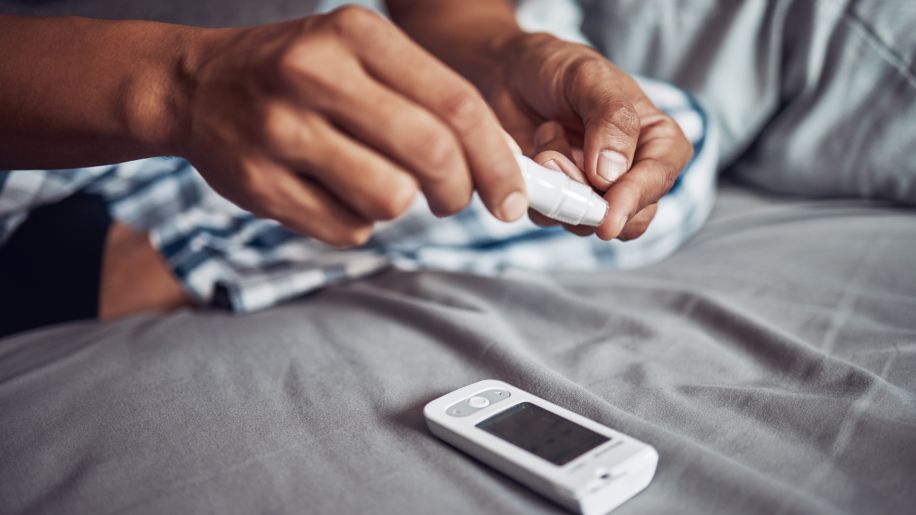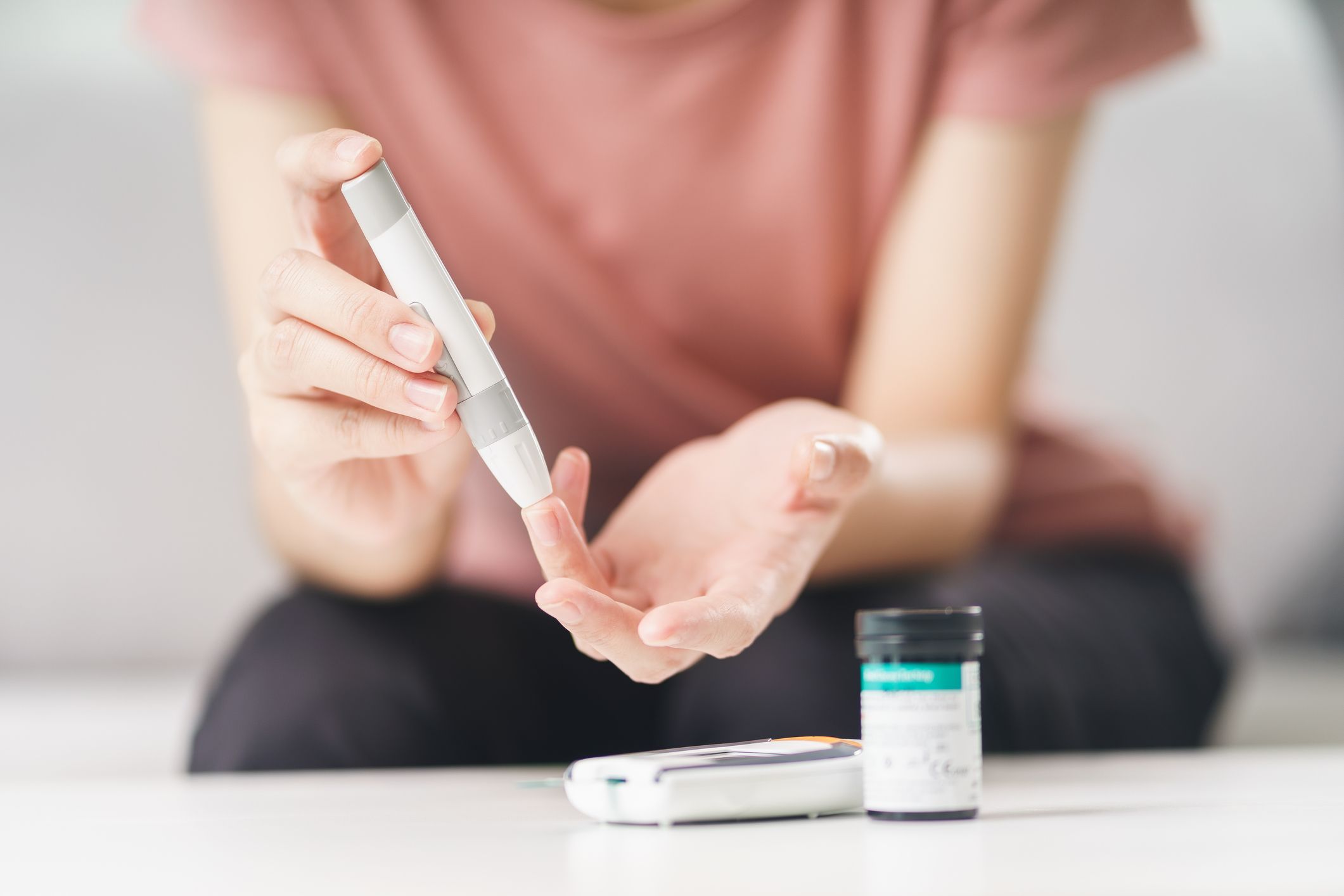Life with diabetes
Find easier ways to face the daily challenges that come with diabetes.

Finding Easier Ways
No doubt, diabetes can be hard on your health and how well you feel. But it can also play a big role in other parts of your life, such as your marriage, your finances, and your emotional well-being. You may feel angry one day, sad the next. You may worry how others will treat you—and wonder if they even need to know you have diabetes. Dealing with diabetes every day isn’t easy. But you can make it easier. Here are 9 ways diabetes can affect your life and how you can manage them.
Medically reviewed in December 2019.

Managing the Costs
Most people with diabetes spend two to three times more money on medical care than people without diabetes. If you have diabetes, your healthcare costs will be about $11,744 each year—and over half of that will be due to diabetes. In fact, you're likely to see your expenses go up by about $4,174 in the first year after you're diagnosed. That can be hard on your finances. How you manage the cost of your diabetes care will depend on your health insurance coverage, income, and other life circumstances. To keep stress at a minimum, talk to your diabetes educator or doctor about ways to save money while getting the care you need.

Dealing with Stress
Managing a chronic disease like diabetes is challenging. "Many people get stressed out because their expectations aren’t realistic," says John Zrebiec, MSW, CDE, chief of the mental health clinic at the Joslin Diabetes Center in Boston. "They expect they’re going to be perfect and lose a lot of weight very quickly, or that their sugars will be perfect." Minimize stress by setting realistic goals. Then focus on the rewards of your actions, such as having more energy and control. Be sure to get support from other people, too. Involve family, friends, or a support group in your quest to reach your goals.

Protecting Your Marriage
Being diagnosed with diabetes is life-altering—not just for the person with diabetes, but also for loved ones and caregivers. "Those we love don’t always react to our diabetes the way that we hope they will," says Janis Roszler, RD, CDE, a marriage and family therapist in Miami. "Some rise to the occasion and surpass our expectations, and others fall short." Having support from your partner can make a big difference in how well you cope with the challenges of diabetes. If your needs aren’t being met, let your partner know and discuss changes. Set aside time to be together without talking about diabetes. Seek additional support, so your spouse isn’t your only sounding board.

Sticking to Dietary Changes
It’s no fun being vigilant about everything you eat. "People think that a diabetic diet means deprivation," Zrebiec says. "But it’s really about eating healthy and in moderation." You can even enjoy so-called unhealthy foods like chocolate and alcohol—in limited amounts. Zrebiec encourages people with diabetes to stick with healthy practices like carb-counting and measuring portions, because it eventually gets easier. It’s also important to recognize the rewards that come with vigilance, such as lower blood pressure, weight loss, better blood sugar, and feeling more in control.

Working Through It All
Having diabetes can make you feel insecure about your job, especially if you have diabetes complications. You may worry that higher-ups will think less of you, you won’t get promoted, or you'll get fired due to diabetes. The best thing to do is practice good glucose (blood sugar) control, which will keep you healthy, Zrebiec says. The Americans with Disabilities Act (ADA) means employers can't discriminate against you for having diabetes, and they're required to make reasonable accommodations for you to do your job. While you may be reluctant to let coworkers know about your diabetes, keep in mind that anti-discrimination laws apply only if your employer knows about your disability.

Getting Over the Guilt
Some people feel as if they brought on the diabetes themselves, says Josephine Minardo, PsyD, executive director of New Jersey Psychological Associates. Often, they forget that genetics and family history play a role in diabetes, too. Feelings of guilt or shame can sometimes get in the way of making healthy choices. The best thing to do is to acknowledge your guilt, Minardo says, and let it go. "Think about what you can be doing now to improve your health and what’s realistic."

Finding Support
Deciding who needs to know you have diabetes can be a difficult decision. You may worry that friends will judge you, or that colleagues will lose respect for you because you have diabetes. But telling the right people can make a big difference in your diabetes care. "You should tell people who can support you," Minardo says. This includes close friends and family members, but may also include people you spend a lot of time with, such as colleagues or roommates. Make a list of the people in your life who may need to help you in a medical emergency. Then tell them about your diabetes and what to do in a hypoglycemic (high blood sugar) emergency.

Feeling in the Mood
About half of all adults with diabetes are likely to develop some form of diabetes-related sexual complication. Men may have erectile dysfunction, premature ejaculation, and low testosterone. Women may experience vaginal dryness, low sex drive, and painful intercourse. Keeping your A1c (a measure of blood sugar levels over time) at a healthy level, lowering your blood pressure, getting regular exercise, and quitting smoking can help improve sexual function. Strengthening your relationship with your partner by talking to a licensed therapist or counselor may also improve your sex life.

Overcoming Sadness
Being diagnosed with diabetes can cause feelings of grief or sadness. So can fluctuating blood sugar levels and worries about complications. To stay well, learn more about diabetes and how food, activity, and medication can affect your blood sugar levels. Know that you may get easily tired from physical activity and need to plan ahead. But remember you don't have to go through this alone. "It can be difficult," says Melinda Maryniuk, RD, CDE, director of clinical education programs for the Joslin Diabetes Center in Boston, Mass. "But if you talk about all aspects up front, address barriers to care, and talk about what's hard, you can look for solutions and learn to handle it better."
Featured Content

article

article

slideshow

slideshow

slideshow
